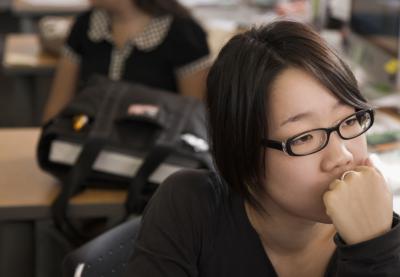Harvey Weinstein, Kevin Spacey, Charlie Rose, Al Franken, Louis C.K, Ben Affleck, Matt Lauer. This is just a tiny sample of the growing list of men who have been accused of sexual harassment or sexual assault in recent weeks. Many, though not all, of these men have been publicly terminated or asked to resign from their positions.
It is no secret that powerful people sometimes abuse their power, and that this often leads to sexual abuse or harassment. What’s new is that people who hadn’t felt comfortable coming forward before—mostly, but not exclusively, women—are feeling empowered to do so now, and the public is finally seeing these men being held accountable for their actions.
Since this is happening en masse, and since these men are very high-profile celebrities, it is everywhere in the news. Our students are probably hearing about this on a daily basis, so it is vital we address it in our classrooms. Whether we initiate the discussion or the conversation develops naturally from a student comment or question, there are some important things to consider when dealing with such a sensitive topic.
If the conversation about sexual harassment and assault doesn’t come up organically, there are a number of ways to incorporate it into your classroom. Some teachers may prefer to explicitly pause the normal curriculum to have a discussion about this important topic. Others may make it part of a current events or social justice unit, and still others might prefer to frame the discussion with historical context. Since these allegations have everything to do with power, this discussion can be related to almost anything: who has power and who doesn’t, how those with power wield it, what they feel they can get away with and how those with even more power cover it up. Historical figures, literary characters, political leaders and the like can all provide an excellent segue into talking about these current, real-life allegations.
Depending on the age of your students, their comfort level with the material and your own comfort level, you may choose to talk more generally about power. Here are some questions to consider asking students:
- How does having power affect one’s sense of privilege? How might that lead to oppression or abuse?
- What might inspire survivors of abuse to come forward?
- What has to happen for us as a society to take these allegations seriously and create a better world where these things happen less and less?
Diving into these questions in the safe space of the classroom can help students make sense of why these stories seem to be at the top of their newsfeed every day. This discussion can also be a good opportunity to remind students of ways they can support survivors of harassment or assault by empowering and affirming survivors while also encouraging them to tell a trusted adult. Students might discuss the importance of simply listening to survivors’ stories, rather than making the situation worse by teasing, discounting or blaming them.
To be sure, this is a sensitive issue. There may be some students who do not feel comfortable discussing sexual abuse and harassment for many reasons. If you’re planning a conversation that hasn’t already come up, it may be useful to let students know ahead of time that you’ll be discussing this issue. If students seem visibly distressed, feel free to pause the discussion and come back to it later or check in with individual students if you are concerned.
It is also important to be prepared to encounter students who subscribe to the “boys will be boys” mentality. In that case, you might take time to clearly reframe the issue, reminding them that this isn’t about chromosomes or hormones, but rather about power, influence and leverage. This is also a good opportunity to point out that people of all sexes and gender identities can be survivors and abusers. We hope those in positions of power would be careful not to use their positions for atrocious acts such as those we’ve been reading about in the news. But it’s important that we hold abusers of power accountable and work to dismantle the structures that allow such abuse to happen.
Regardless of how the conversation starts or where it goes, it is essential that we as educators acknowledge that the national conversation unfolding outside our classroom doors exists. Engaging our students in a conversation about sexual harassment and assault in a genuine, sensitive manner will not only help them process the information they are hearing but will also remind them that—with everyone’s hard work—we can make the world a better place for them when they enter the workplace.
For more help with discussing sensitive issues in the classroom, see Teaching Tolerance’s guide Let’s Talk! Discussing Race, Racism and Other Difficult Topics With Students.
Samsa is a freelance writer and teaches high school English in the south suburbs of Chicago.
